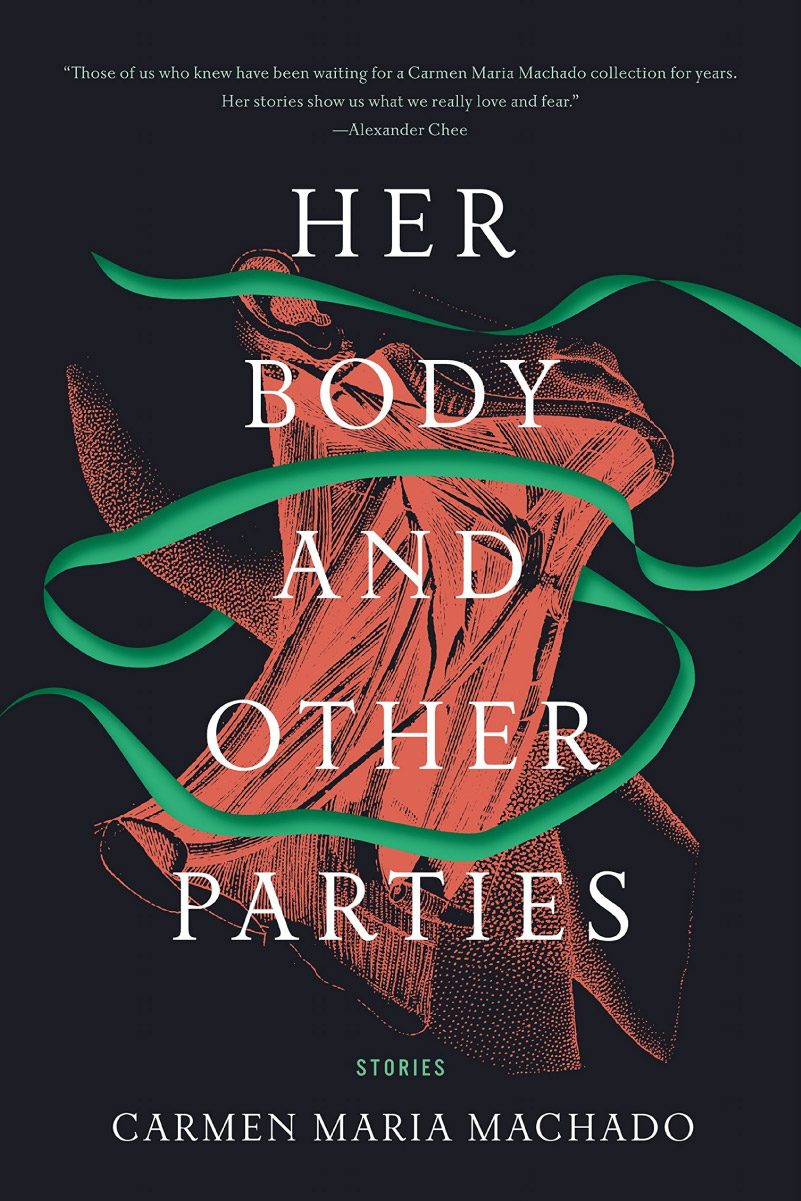Her Body and Other Parties
by Carmen Maria Machado
“He wishes they were still floating safely in the unborn space, which he imagines to be grayish-blue, like the Atlantic, studded with star-like points of light, and thick as corn syrup.”
In Carmen Maria Machado’s groundbreaking short story collection, she grapples with sex, femininity, reader-interaction, and societal issues. She transforms the typical short story. In “The Husband Stitch,” she analyzes the role of the reader, in “Real Women Have Bodies,” she discusses the relationship between femininity and society, and in “Inventory,” she dives into pandemics and the meaning of love.
In “The Husband Stitch,” the deeper meaning is intertwined with the relationship not between the characters, but between the reader and the author. Machado wants to challenge us and make us question our knowledge. She wants to prove that she will always have the upper hand as the author. Through various obstacles—of parentheticals on each page and sporadically-placed urban legends—she questions the literary power dynamic and demands control. Machado purposely punishes the reader by leaving out key details, in order to make us understand that in a piece of writing, we as readers are just performers in her tale while she is the mastermind behind it.
The world of “Real Women Have Bodies” is eerily similar to our own, but with one major difference: women in the story “fade” after having lost their femininity or their subservience to society, it seems. Machado makes women both the aggressors and victims in her story, highlighting how prevalent societal brainwashing is in relationships and violence.
The meanings of Machado’s stories aren’t obvious and many interpretations are possible. But her goal seems to be to make us rethink how we see literature—it’s not accommodating or simple. It’s complex and multifaceted. She makes the case that art is for the artist’s sake, and to truly understand literature is to get angry at it. She frustrates and confuses you in order to bring you to a conclusion: there does not always have to be an easy meaning behind a story—and one doesn’t have to analyze a story to pieces in order to find joy in it. If you want to hyper-analyze Machado, you will fail.



